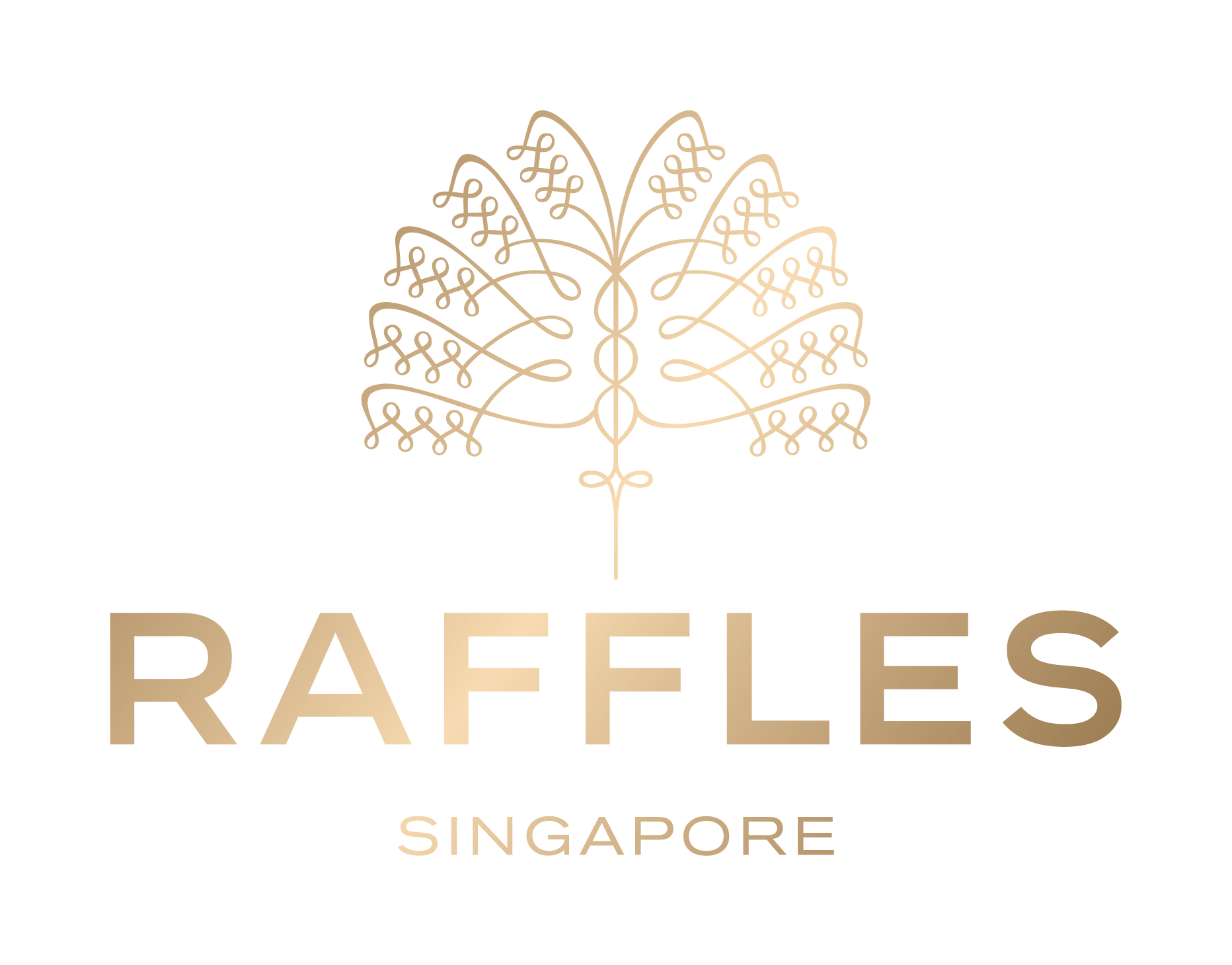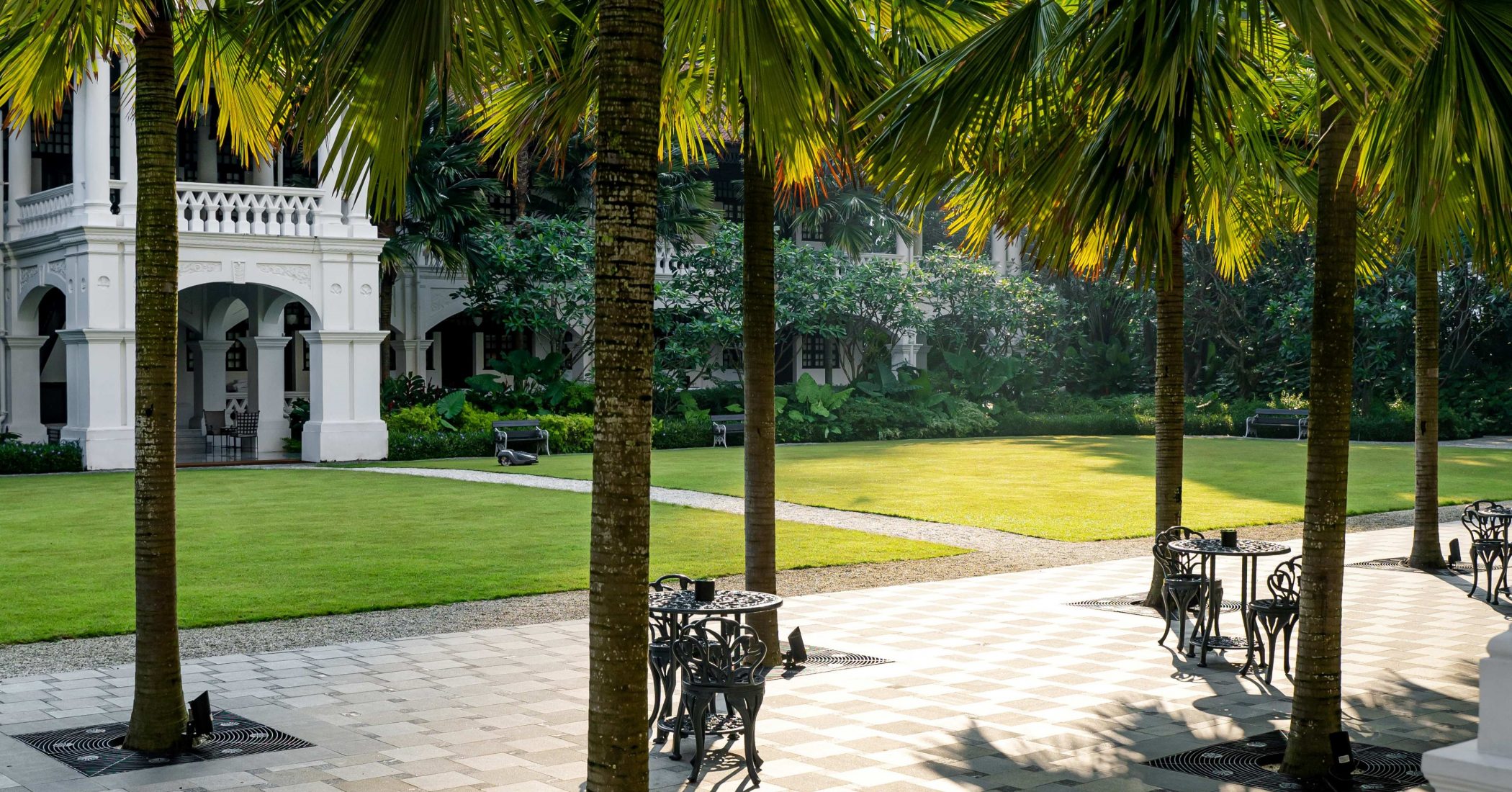SUSTAINABILITY MANAGEMENT PLAN 2024
Environmental Policy
Raffles Hotel Singapore is committed to sustainability and is proud to contribute to Accor’s commitment to net-positive hospitality.
We aim to follow and promote good sustainability practices, to reduce the environmental and social impacts of all our activities and help our guests, colleagues and partners to do the same.
Procedure:
To deliver this ambition, Raffles Hotel Singapore will:
• Comply with all applicable sustainability regulations.
• Ensure compliance with Accor’s mandatory sustainability actions to responsibly manage the environmental and social impacts of operations. This includes following Accor’s Ethics and CSR Charter, Responsible Procurement Charter, Human Rights Policy and Health & Sustainable Food Charter.
• Appoint a ‘Sustainability Champion’ to oversee and drive the integration of sustainability practices.
• Utilise Accor’s sustainability reporting tool to, at a minimum, report on carbon, energy, water, and waste measurements including food waste and single-use plastic waste reduction.
• Implement strategies to reduce carbon, energy, water and waste consumption through efficiency measures and integrating reduction strategies into annual CAPEX planning.
• Train colleagues on sustainability practices relevant to their role, including Accor’s mandatory Human Trafficking training.
• Obtain an approved third-party sustainability certification to support validating sustainability claims.
• Continue to strive to do better by implementing a continuous improvement plan to ensure each property is able to meet and uphold the evolving sustainability ambitions of both Accor and Raffles.
References:
• Accor Ethics and Corporate Social Responsibility Charter
• Accor Human Rights Policy
• Accor Responsible Procurement Charter
As part of our continuous Sustainability Journey at Raffles, we focus on:
1. Sustainable Management – to be involved in the overall sustainability planning, communication, health and safety regulations and quality management
a. Obtain third-party accreditation (eg: Green Globe, HACCP)
b. Increase engagement with guests and business partners to partake in our sustainability efforts
c. Compliance with relevant local laws and regulations
d. Environmental risk assessment plan
e. Emergency response and fire safety procedures in place
f. Safety inspection and maintenance
2. Socioeconomic – to be involved in corporate social responsibility actions, community development and engagement, local employment, fair trade, collaborating with local communities, equitable hiring and employee protection
a. Corporate Social Responsibility initiatives through Raffles Outreach Committee
b. Colleague education and training with the Accor-led programme, School for Change.
c. SkillsFuture Queen Bee Programme where we work with SMEs in the hotel and F&B sectors to elevate the skills and service standards of their workforce.
d. School outreach programmes to share about the hospitality sector
e. Empowering colleagues with initiatives that include women in senior leadership, colleagues trained in human rights, celebrating inclusive milestones and wellbeing at work.
f. Develop a network of local projects and charities that guests can support which includes regular engagement with Community Chest of Singapore, National Heritage Board and Singapore Symphony Orchestra
g. Design positive impact experiences to engage guests in supporting local projects and communities
h. Local employment in line with requirements by the Ministry of Manpower (MOM) for staff hiring guidelines, which includes the proactive recruitment, development, and mentorship of the local workforce
i. Fair Trade practices and considerations for procurement
j. Support local entrepreneurs and beneficiaries through Shop for Good at Raffles Boutique
3. Cultural Heritage – to be involved in the promotion and preservation of the local culture, heritage, traditions and customs, as well as supporting local artisans and cultural events including:
a. Respecting local communities
b. Adopting the recommended social and cultural codes of behaviour in Singapore
c. Promoting and celebrating local cultures and cuisines
d. Preservation of historical artefacts
e. Daily historical tours around Raffles Hotel by resident historians
f. Protection of Sites and Incorporation of Culture as a national monument of Singapore
4. Environmental – to be involved in conserving resources, reducing pollution, conserving biodiversity, ecosystems and landscapes
a. Water conservation
b. Energy conservation
c. Overall waste management and reduction
d. Food waste management and reduction
e. Single-use plastic elimination in guestrooms and back-of-house
f. Carbon emission reduction
g. Pollution reduction through a pollution management plan
h. Biodiversity conservation
i. Positive impact in the neighbourhood (ecological garden in the city)
j. Sustainable Singapore Sling
k. Sustainable procurement
l. Sustainability education and communication to guests
m. Sustainability awareness and training for colleagues
n. Continuous monitoring and reporting of sustainability targets
Recommended Social and Cultural Etiquette in Singapore
While Singapore is a cosmopolitan city with a multicultural and multi-religious local population, Raffles Hotel Singapore follows Accor’s Ethics and Corporate Social Responsibility (CSR) Charter guidelines to ensure our guests are aware and respectful of local cultures and customs.
Below, you can find a non-exhaustive list of some common social and cultural etiquettes when interacting with the locals and visiting cultural or historical sites of attraction.
1. Respect for Cultural Diversity: Singapore is a melting pot of various cultures, including Chinese, Malay, Indian, and Western influences. Respect the customs and traditions of each culture by actively learning and engaging with different cultural practices, festivals and traditions throughout the stay.
2. Public Behaviour: Singaporeans value cleanliness and orderliness. Avoid littering, spitting, or any other forms of public disturbance. Chewing gum is also prohibited in public places.
3. Respect for Elders: In Singaporean culture, respecting elders is crucial. Seats should be given up on public buses or trains to elderly passengers if no seats are available to them.
4. “Choping” tables at hawker centres with tissue packets: Do not be surprised if there is a number of tissue packets put on tables at hawker centres, especially during peak meal times like lunch and dinner. This practice is common among the locals to reserve (or “chope”) seats while they are ordering their food. If a seat is needed at a busy hawker centre, politely ask to share the table.
5. Tipping: Tipping is not customary in Singapore, as a service charge is often included in bills at restaurants and hotels. However, if there is exceptional service, a small tip is appreciated but not expected.
6. Respect for Religious Sites: When visiting temples, mosques, or churches, observe silence and refrain from disruptive behaviour such as talking on the phone or loudly munching on food. Dress modestly and remove shoes before entering if required.
7. Preserve Historical Sites: Treat historical sites and monuments with care and reverence. Avoid defacing or damaging these sites, and refrain from removing any artifacts or souvenirs.
8. Support Cultural Preservation Efforts: Contribute to initiatives that promote the preservation of local cultures and historical landmarks. This can include donations to heritage conservation organizations or participation in cultural events, workshops and tours organized by locals.
9. Engage in Sustainable Tourism: Choose sustainable travel options that support local businesses and minimize negative impacts on cultural heritage sites. Consider purchasing handmade crafts from local artisans or supporting local charities focused on heritage preservation.
10. Practice Responsible Tourism: Minimize the environmental impact when visiting cultural and historical sites. Dispose of waste properly, refrain from littering, and follow designated pathways to avoid disturbing fragile ecosystems.

